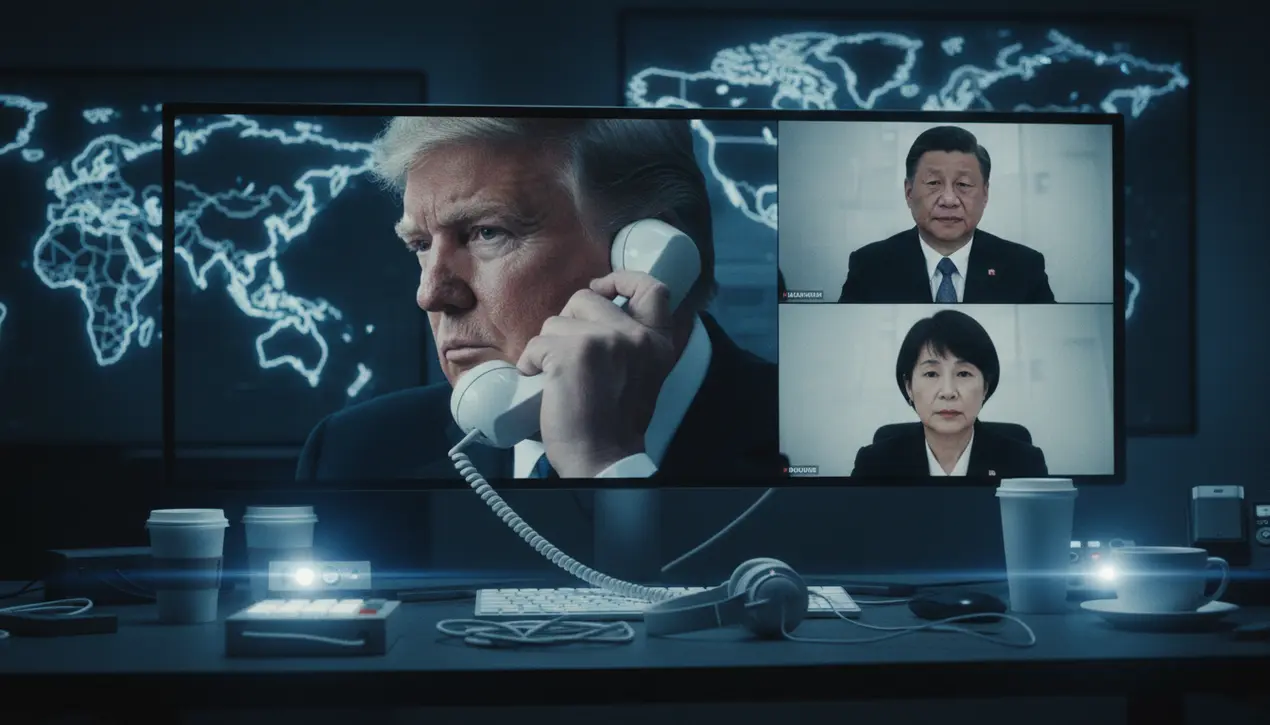
PoliticsdiplomacyBilateral Relations
Trump's calls with Xi and Takaichi signal Taiwan policy stance.
RO
Robert Hayes
8 hours ago7 min read
The recent flurry of diplomatic communications from the White House, specifically President Donald Trump’s concurrent phone calls with Chinese President Xi Jinping and Japanese Prime Minister Sanae Takaichi, reveals a calculated and historically resonant maneuver in the perennial geopolitical chess match over Taiwan. This isn't merely routine diplomacy; it's a deliberate signaling exercise, a nuanced calibration of alliances and rivalries that echoes strategies from the Cold War playbook.Washington is engaged in a precarious balancing act, attempting to reassure a nervous Japan of its unwavering commitment to regional security under their mutual defense treaty, while simultaneously sending a clear, if unstated, message to Beijing that the Trump administration prioritizes the stabilization of Sino-American economic and strategic relations above any overt provocation on the Taiwan issue. Diplomatic observers and veteran analysts of the State Department interpret these high-level exchanges as a masterclass in strategic ambiguity, designed to manage expectations in both capitals.To Tokyo, the call reinforces the US-Japan alliance as the cornerstone of Indo-Pacific stability, a necessary reassurance as China's naval power grows. To Beijing, however, the subtext is equally potent: Taiwan is not a top-tier priority that will be allowed to derail the complex, often fraught, relationship between the world's two largest economies.This delicate dance has deep roots, harkening back to the Nixon administration's opening to China and the careful construction of the 'One China' policy, a diplomatic framework that has maintained a fragile peace for decades. The risk, of course, is one of miscalculation.By downplaying Taiwan's significance in one arena while bolstering alliances that implicitly support its defense in another, the Trump administration walks a razor's edge. Should Beijing interpret this as a license for increased coercion, or should Tokyo feel its security concerns are being sidelined for a grand bargain with China, the entire delicate structure could collapse.The consequences are profound, potentially reshaping the military balance in the Asia-Pacific and setting the stage for a confrontation that neither side ostensibly wants but for which both are increasingly preparing. The true art of statesmanship, in this context, lies not in bold declarations but in the quiet, calibrated messages sent through a Tuesday morning phone call, a modern echo of the diplomatic cables that once averted greater crises.
#diplomacy
#US-China relations
#Taiwan
#Trump
#Xi Jinping
#Japan
#foreign policy
#featured
Stay Informed. Act Smarter.
Get weekly highlights, major headlines, and expert insights — then put your knowledge to work in our live prediction markets.
Related News
Comments
Loading comments...
© 2025 Outpoll Service LTD. All rights reserved.